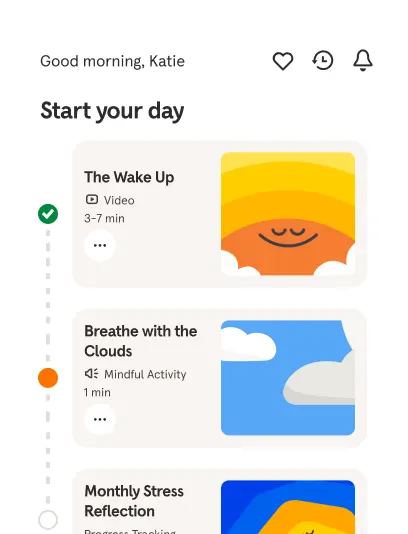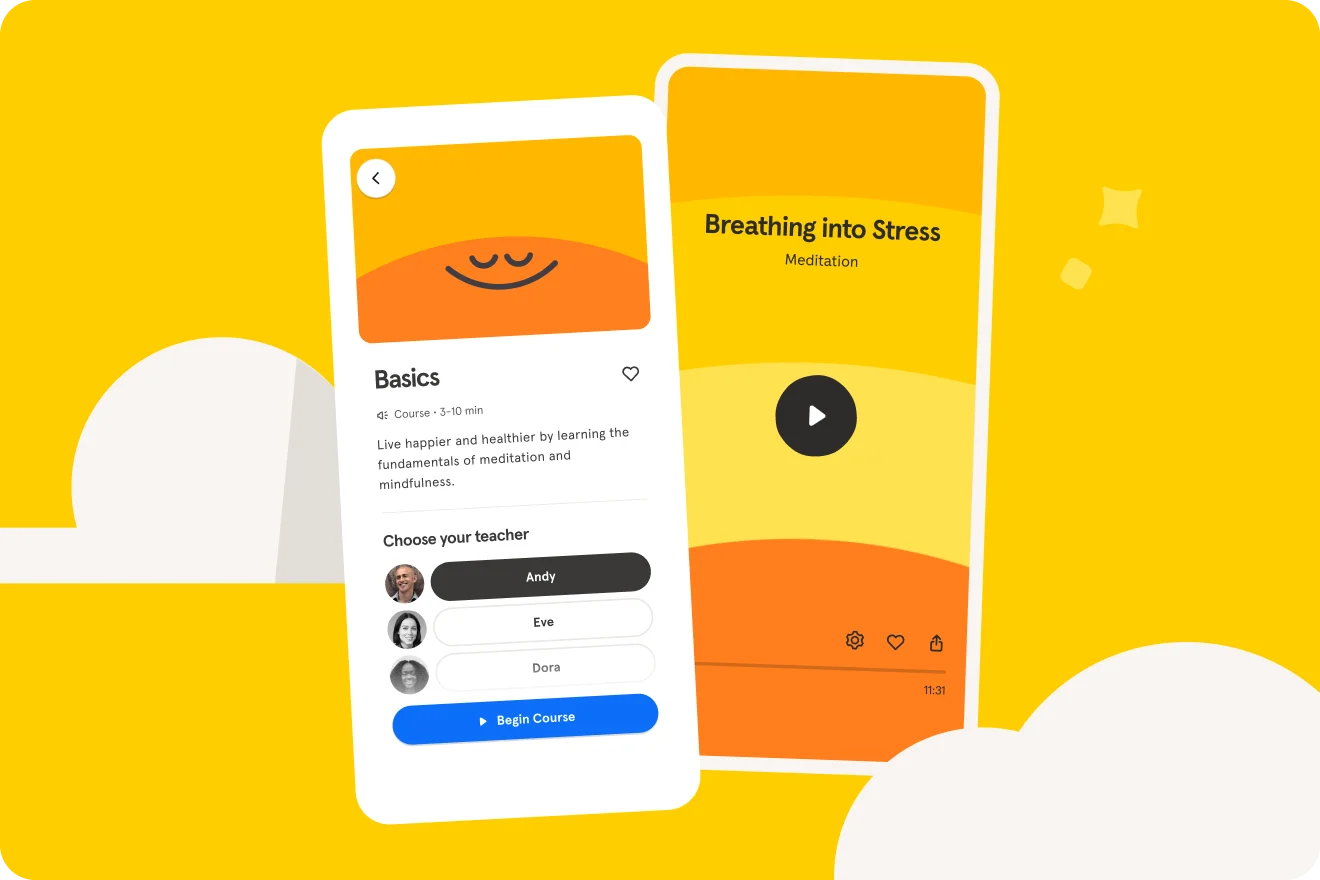Mindful Walking for Sleep
To avoid creating a negative association with your bed, when you really can’t sleep it’s best to get up and do something relaxing. This mindful walking exercise will put the body in motion, with the goal of calming the mind.
Try 14 days freeBetter mental health starts with Headspace. Unrivaled expertise to make life feel a little easier, using guided meditations, mindfulness tips, focus tools, sleep support, and dedicated programs.
Try 14 days free
Hi, I'm sorry you can't sleep. It might sound a bit counter-intuitive but many sleep scientists suggest getting up and doing something else when you can't sleep. The idea is not to do something that will make you go to sleep, but just something enjoyable and relaxing. A little walking meditation is a great option. We're not trying to force sleepiness, we're just being aware if sleepiness does arise. This kind of walking exercise is really useful when the mind is racing or when the body is feeling a bit restless. You're not going to need to make any loud noises so you needn't worry about waking anyone up but you will need a little bit of space. Maybe find a room that's not too close to where anyone is asleep. I'm going to encourage you to walk incredibly slowly at times. So it's important that you feel comfortable and there aren't too many distractions around you. Ideally, this is done where you can walk in a straight line backwards and forwards, sort of anywhere between 10 and 20 paces. So it requires almost a runway where you can walk up in one direction, pause, turn around and come back in the other. So just taking a moment before you begin to walk, just to pause, to feel the sensation of the feet on the ground. A nice, soft focus with the eyes. Just take a big, deep breath, breathing in through the nose and out through the mouth. And as you breathe out through the mouth just beginning to walk. So to begin with just walking naturally, normal speed, walking down, pausing, turning around and walking back again. Just getting comfortable bringing the mind into the body, noticing how the body feels as you walk. Starting to notice the movement of the body, maybe the arms, the legs, the hands, or the feet. But in particular, that movement of the legs, the rhythm of the legs, moving back and forth, starting to slow it down just a little bit. Not too much, but just a little bit so each and every time you set out to walk slowing it down by just 10% each time. And as you're walking now, starting to notice the sensation of the foot pressing against the floor, so the feeling of one foot pressing down and that pressure just easing off as you lift the foot and the next foot pushing down. The sensation of it lifting up. So just settling into that rhythm of the feet pressing against the floor beneath you. Still aware of the space around you, still aware of the rest of the body, but just starting to slow down now, walking a lot more slowly as you just rest the attention on the sensation of one foot and then the next, and then the next, and the next just staying with that rhythm. At any time you get distracted, just noticing it, letting it go and bringing the attention...
Details
About your teachers
- More about Andy
A former Buddhist monk, Andy has guided people in meditation and mindfulness for 20 years. In his mission to make these practices accessible to all, he co-created the Headspace app in 2010.
- More about Eve
Eve is a mindfulness teacher, overseeing Headspace’s meditation curriculum. She is passionate about sharing meditation to help others feel less stressed and experience more compassion in their lives.
- More about Dora
As a meditation teacher, Dora encourages others to live, breathe, and be with the fullness of their experiences. She loves meditation’s power to create community and bring clarity to people’s minds.
- More about Kessonga
Kessonga has been an acupuncturists, therapist, and meditation teacher, working to bring mindfulness to the diverse populations of the world.
- More about Rosie
Rosie Acosta has studied yoga and mindfulness for more than 20 years and taught for over a decade. Rosie’s mission is to help others overcome adversity and experience radical love.

Your lifelong guide to better mental health
Stress, sleep, and all the challenging emotions — care for your mind with the everyday mental health app that's shown to make a difference.
Try 14 days free
Look after your mind
Proven guided meditations and programs to help you stress less, sleep more soundly, and better navigate life’s challenges

Science-backed
Studies show that using Headspace for 30 days can reduce stress, increase resilience, and improve overall well-being

Explore 1000+ expert-led exercises
Access our library of meditations, breathing exercises, and guidance videos for stress, sleep, focus, everyday anxiety , parenting, and more.
Member reviews
Hear from some of our members
Your app brings so much peace and tolerance to our home.
Rachel
UK
Changing my thoughts has allowed me to change my life.
Davide
London
The stress and loneliness courses … taught me how to comfort myself.
Alicia
Canada
Headspace provides me with … a connection to myself, and a disconnection from negative thoughts, feelings, and sensations.
Keri
UK
- © 2024 Headspace Inc.
- Terms & conditions
- Privacy policy
- Consumer Health Data
- Your privacy choices
- CA Privacy Notice

